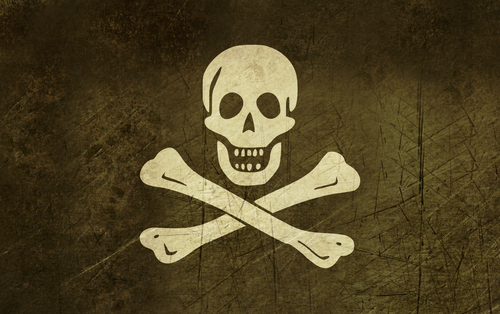

Business Software Alliance (BSA), an industry group representing software companies, has today published a report in which it claims the majority of UK’s small to medium-sized businesses (SMBs) have bought or downloaded illegal computer programs, leading in some cases to serious security issues.
The organisation said that 41 percent of small companies which paid for pirated applications believe they had their personal details used for identity theft, and 28 percent might have had their bank accounts raided as a result.
After a survey of 250 small businesses, BSA found that 33 percent of respondents which bought pirated software had additional money debited from their account, and 41 percent said that the products were delivered late, or not delivered at all.
“The practice of downloading illegal software amongst small businesses is clearly widespread. The research suggests that a large number of UK businesses have an unclear understanding of what constitutes illegal software use, at best; and a blatant disrespect for copyright law and business ethics, at worst,” commented Michala Wardell, committee chair at BSA UK.
However, there are still some law-abiding enterpreneurs out there: the survey also found that about half of SMBs replaced the illegal software once it was discovered, and 27 percent later paid for a legal software key.
“It’s encouraging to see that many of these businesses have taken action to address the error, often at their own expense. But to avoid undue costs and security risks, businesses need to be more vigilant about where they buy their software from in the future,” said Wardell.
A part of the problem might stem from the fact that many SMBs don’t have proper license management solutions in place. In the survey, 54 percent of companies admitted they don’t have procurement records for all of the software they use, despite the fact that these companies spend an average of £17,000 on programs.
“In many cases, it might seem easier to just press download, than ask too many questions. Unfortunately, the opposite is the case. Small businesses are leaving themselves open to security threats, liability claims and more. While we strive to bring down dishonest traders, we rely upon businesses to take proper precautions when purchasing their software,” said Handley Brustad, joint lead officer for Intellectual Property at the Trading Standards Institute.
Earlier this year, BSA claimed that on average, half of all PC users worldwide are software pirates.
Arrgh! How much do you know about online piracy? Take our quiz!
All Cybertrucks manufactured between November 2023 and February 2025 recalled over trim that can fall…
As Musk guts US federal agencies, SEC issues summons over Elon's failure to disclose ownership…
Moonshot project Taara spun out of Google, uses lasers and not satellites to provide internet…
Pebble creator launches two new PebbleOS-based smartwatches with 30-day battery life, e-ink screens after OS…
Amazon loses appeal in Luxembourg's administrative court over 746m euro GDPR fine related to use…
Nvidia, xAI to participate in project backed by BlackRock, Microsoft to invest $100bn in AI…